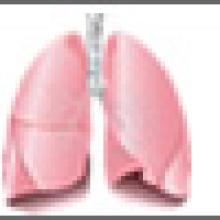Newsroom
10/28/2010
An analysis of the eating habits over 33,000 women was used to estimate the impact of dieatary acrylamide intake on breast cancer risk. Acrylamide is found in carbohydrate-rich foods cooked at high temperatures (i.e. french fries and potato chips). It is also found in cigarette smoke. The… more
10/27/2010
A Danish study following over 55,000 men and women for a period of about 10 years found that those who had healthy lifestyles were able to substantially lower their risk of developing colorectal cancer. Activities monitored included physical activity, alcohol consumption, smoking, waist… more
10/26/2010
A Swedish study of 1167 men found that a single prostate specific antigen (PSA) test at age 60 was able to accurately predict which men were likely to develop aggressive prostate cancer. The men were part of a large Swedish prevention study and were followed until age 85. The results suggest that… more
10/25/2010
Triple negative breast cancer tends to occur in younger women and is more common in African American women. These cancers lack the estrogen receptor (ER), progesterone receptor (PR) and epidermal growth factor receptor (HER2). Triple negative cancer is harder to treat because the drugs targeted at… more
10/25/2010
Researchers in Australia have shown that gamma-tocotrienol, a component of vitamin E, is effective at reducing the growth of tumors from transplanted prostate cancer cells. The agent also makes the cancer cells more sensitive to traditional chemotherapy agents. The researchers believe that the… more
10/22/2010
Improvements in detection and treatment of cancer have lead to an increasingly large population of cancer survivors. Many of these are of child-bearing age. Their concerns about being able to have children and a satisfying sex life are not typically dealt with fully by their doctors. This can… more
10/22/2010
A long-term follow-up analysis of four studies showed that taking low doses of asprin (at least 75 mg/day) for several years, reduces the risk of colorectal cancer. The effects were increased with increasing duration of aspirin usage. Interestingly, the impact was most clear for cancers affecting… more
10/21/2010
People with diabetes get cancer more than would be expected by chance. The answer to whether diabetes causes cancer is incomplete but interesting. The diseases share common risk factors (i.e. obesity), but both are complex illnesses, making a direct link hard to prove. There is evidence which… more
10/20/2010
Patients with non-small cell lung cancer (NSLC) who had palliative care added into their treatment plan at the time of diagnosis had a better quality of life. These patients tended to receive less aggressive treatment at the end of their lives but lived longer than patients who did not receive… more
10/20/2010
An 11 year follow-up of participants in the Women's Health Initiative has demonstrated that women who took hormone replacment therapy are more likely to develop cancer and the cancers detected in these women are more likely to be more advanced (node positive). Deaths due to breast cancer were also… more
10/19/2010
Metastasis, the spread of cancer from its original site, is associated with the great majority of cancer deaths. Researchers have shown, in a mouse model, that when pancreatic cancer cells spread, they appear to be accompanied by non-cancerous cells from the same organ. The non-cancer cells may… more
10/19/2010
Surgeons at the Mayo Clinic have succeeded in using lasers, guided by magnetic resonance imaging (MRI), to remove tumors as large as 2 inches. The laser is used to precisely heat the tumor, killing the cancer and sparing healthy tissue.
10/19/2010
A study by MD Anderson researchers adds to the evidence that the demand for radiation therapy may exceed the capacity of radiation oncologists over the next ten years. As the population ages and minority populations grow, the demand is increasing much faster than new radiation oncologists are… more
10/18/2010
After ten years of follow-up, a study comparing anastrozole (an aromatase inhibitor) with tamoxifen (an estrogen antagonist) has shown that anastrozole is better at preventing breast cancer recurrence in post-menopausal women with estrogen receptor positive cancer.
10/15/2010
Researchers have identified a protein, microseminoprotein-beta (MSMB), that may be a better predictor of prostate cancer risk than prostate specific antigen (PSA). The newly identified marker is found in urine and prostate tissue. Levels of MSMB are lower in men at risk for ( or already diagnosed… more
10/15/2010
A new Phase I clinical trial at Cincinnati Children's hospital will attempt to use herpes viruses to treat cancer. The viruses being used are defective and don't grow in normal cells but are able to multiply in, and kill, cancer cells.
10/14/2010
Women who have had breast surgery and had lymph nodes removed from under their arms are at elevated risk of developing lympedema. These women may have been told to limit exercise affecting this area of their bodies. New research suggests that upper-body exercise may be beneficial to these women… more
10/13/2010
Using special imaging techniques, researchers think they may be able to detect changes in cells from the cheeks of people developing lung cancer. Even though the cheek cells are not cancerous, they are affected by the cancer in ways that change their appearance when analyzed by special microscopic… more
10/13/2010
Results from a French study on men and women treated with a variety of targeted cancer drugs show that the treatments negatively impact their sex lives. The effects were significant and both sexes were subject to this side-effect.
This study was presented at the 35th Congress of the European… more
10/12/2010
A analysis of over 85,000 women showed that living a healthy lifestyle can reduce the risk of breast cancer, even in women with a family history of the disease.




















